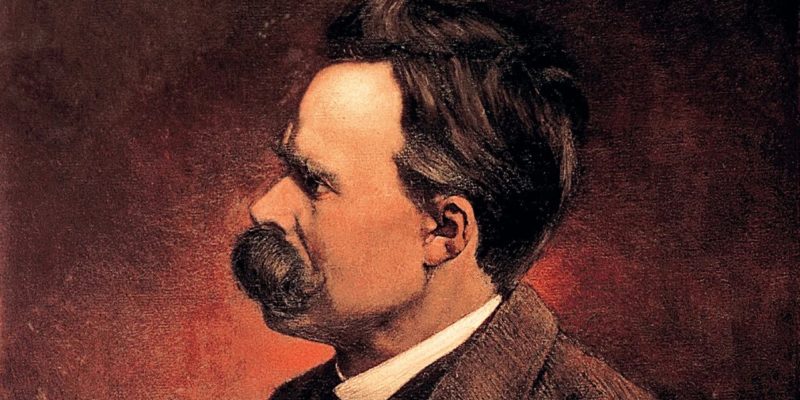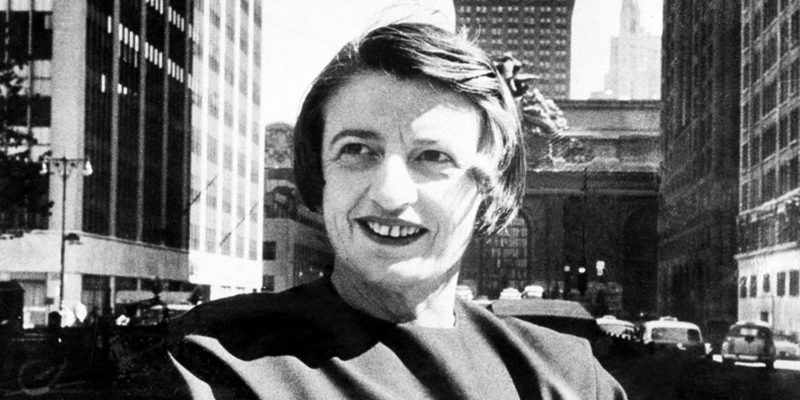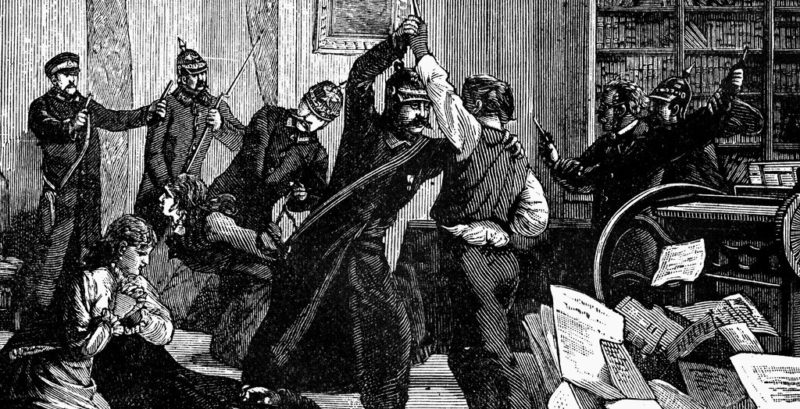We explain what nihilism is, its origins and central ideas. In addition, its main characteristics, classification and more.

What is nihilism?
Nihilism is a way of thinking about the metaphysical, ethical and gnoseological history of the Western world. Nihilism holds that rather than there being "something" that works as the foundation of all that is, there is "nothing", as its name suggests (from Latin nihil, meaning "nothing").
Nihilism rejects the fundamental and generally accepted assumptions regarding the meaning of life. Thus, it denies the possibility of an ultimate end or meaning to human existence, since nothing sustains it or drives it in any particular direction.
While nihilism can be traced back to Ancient Greece or the work of Augustine of Hippo, the term became popular in the 19th century, in Russia and Germany. Russian writer Ivan Turgenev used the term "nihilism" in his 1863 novel Fathers and Sons. German philosopher Friedrich Nietzsche used nihilism as an interpretive key understand the history of Western metaphysics.
Contrary to popular belief, nihilism is neither a denial of life nor a belief "in nothing". At most, nihilism is the rejection of all objective, absolute or hierarchical meanings that give human existence a specific purpose or end, an explanation or justification.
Nihilism sees history as not progressive, purposeless and without an ultimate goal. It advocates freedom from preconceived ideas about life or destiny and embraces ludic and vitalistic ideas, contrary to the pessimism commonly associated with the term.
- See also: Etymology of the word "Philosophy"
Etymology of the term "nihilism"
The term "nihilism" comes from Latin nihil (meaning "nothing"). It is used to refer to a mode of thought that advocates the nonexistence or "nothingness" rather than the idea of a foundational origin as a starting point. The term was popularized by Russian writer Ivan Turgenev in his 1862 novel Fathers and Sons. Turgenev describes it as a political stance opposed to all authority and belief in faith. The term spread in Imperial Russia: it was frowned upon by conservative sectors and embraced by revolutionaries.
However, the term was actually coined by Friedrich Heinrich Jacobi in a letter sent to philosopher Fichte at the turn of the 18th century (1799), in which Jacobi uses it as a criticism of Immanuel Kant's idealist-transcendental philosophy.
Over time, the term "nihilist" came to be used as a mockery and insult for the young and radical generations who, by opposing traditional order, were accused of "believing in nothing".
Antecedents of nihilism
The clearest antecedent of nihilism is the Cynic school of philosophical thought in Ancient Greece, founded by Antisthenes in the 4th century BC.
Cynics criticized the prevailing order and morality through satire and the practice of "anaideia": shamelessness, provocation or irreverence. They were also credited with indifference towards good and evil as clear and recognizable concepts ("adiaphoria") and freedom of speech ("parrhesia").
Russian Nihilism
Russian nihilism is the name given to a generation of young artists who, during Tsarist Russia (under Alexander II), took advantage of certain civil liberties (such as freedom of the press) to react against old religious, moral and aesthetic values, ridiculing and combating them by means of stark sincerity, bad taste and contemptuous provocation. This served as an inspiration for Turgenev’s generational portrait in his 1862 novel Fathers and Sons.
Nietzschean Nihilism
In philosophy, nihilism gained popularity through the work of Friedrich Nietzsche (1844-1900). Nihilism is Nietzsche's interpretive key to understand the history of Western metaphysics. It proposes the devaluation of higher values. Nietzsche states that "God is dead", thus, there no longer exists an ultimate foundation of reality, which in turn is the foundation of moral values and everything that exists. To state that "God is dead" is to state that there are no more absolute values.
According to Nietzsche, nihilism can be thought of according to the various types of nihilism or nihilistic periods in the history of philosophy:
- Decadent Nihilism. The first type of nihilism is characterized by its metaphysical philosophy, its monotonotheistic thought (the idea of a single God, whatever the names given to him), and its traits of Egypticism (for "mummifying" life, according to Nietzsche). Decadent nihilism is that of the transmundane man or "last man", and that of small and vain virtues. Its figure is the camel, who kneels to be loaded. It is portrayed in The Birth of Tragedy (1872).
- Integral nihilism. The second type of nihilism is the philosophy of the hammer, critical or genealogical philosophy. Integral nihilism is that of the free spirit. Its figure is the lion, since it possesses "freedom from" but cannot yet create. It is portrayed in Human, All Too Human (1878), The Wanderer and his Shadow (1879), Dawn (1881), The Gay Science (1882), On the Genealogy of Morals (1887), Twilight of the Idols (1888), and The Antichrist (1888).
- Future nihilism. The third type of nihilism is artistic philosophy, creative, and value-ruling philosophy. Future nihilism is that of the artist philosopher, the child philosopher or philosopher of the future. Its figure is the child, who has innocence and freedom to create. It is portrayed in Thus Spoke Zarathustra (1883-1885).
Central ideas of nihilism
Although nihilism is not a philosophical doctrine, the main ideas of its proponents can be summarized as follows:
- Life is intrinsically meaningless per se; therefore, there is no "right" way to live it.
- Existence is ephemeral and futile; therefore, it is up to the human being to decide what to do with it in total and absolute freedom.
- Religion, ideology, morality and other doctrines are nothing but mechanisms of thought control in favor of the status quo.
- Being aware of the existential void is a form of freedom.
Philosophical Nihilism
Nihilism in philosophy is linked to the work of two prominent German philosophers: Friedrich Nietzsche and Martin Heidegger.
Nietzsche holds that the history of metaphysics can be seen as the history of nihilistic thought. In this sense, Christianity is nihilistic since the God that serves Christians as the foundation of reality is a “nothing” (nihil) from the start. The oblivion of that “nothing” and the artificial construction of the divine represents nihilistic thought.
According to Nietzsche, Western metaphysical thought is decadent because it is upheld by the opposition and domination of "others" (what is different from oneself) based on the idea of a nihilistic God. This extreme position is what is decadent. The statement "God is dead" precisely means there is no longer fictitious support for what is: higher historical values no longer serve to dominate or establish oppositions. Nietzsche refers to this emptiness as "the death of God".
Heidegger, for his part, describes nihilism as the state in which "nothing of being as such remains", as he reduces being to a mere value. It presupposes a move that follows Western thought and is based on three principles:
- The denial of all existing values.
- The self-affirmation of that initial denial.
- The construction of a new starting point.
Types of nihilism
The best-known types of nihilism are those described by Nietzsche in his various works. Broadly speaking, however, two forms of nihilism are commonly proposed, which differ according to how they regard the nothingness that nihilism posits.
- Active or positive nihilism, understood as the denial of all forms of dogmatism in order to surrender to freedom and the thousands of possible vital options.
- Passive or negative nihilism, understood as the denial of ethical principles, which often leads to self-destruction and negligence.
Nihilism in literature

Literature has made use of nihilism on numerous occasions. In Russian literature, for example, the influence of nihilism can be seen in Turgenev, and in the works of Anton Chekhov, particularly in Three Sisters, where the phrase "What does it matter?" is often employed as a response to the events narrated.
Conversely, for authors such as philosopher and writer Ayn Rand, nihilism represents denial of an essentially vital spirit; thus, her antagonistic characters often have nihilist traits.
Nihilism in film
Contemporary film industry has echoed nihilistic explorations.
- Matrix (1999). Existential questions point to a philosophical break with reality.
- Fight Club (1999). The protagonist embarks on an inner journey in which he frees himself from the prevailing social values, embracing the insignificance of existence instead.
- The Big Lebowski (1998). The characters are labeled as "nihilists" for their lack of life aspirations.
Nihilism in politics

Extreme political movement anarchism often finds points of contact with nihilism, especially in its skepticism of social, hierarchical or religious values that allow for the control of human life on the basis of the model of the “good” life.
In fact, Russian nihilism was the cradle of numerous anarchist groups that later fought for the disappearance of the State.
Popular concept of nihilism
The term "nihilist" has been commonly applied in popular culture as a synonym for rebellion (often in a rather naive sense, associated with adolescence) and for pessimism, depression, despair or even suicide. None of these connotations really corresponds to the original concept.
References
- Volpi, F. (2005). El Nihilismo. Editorial Biblos.
- Laiseca, L. (2001). El nihilismo Europeo: el nihilismo de la moral y la tragedia anticristiana en Nietzche. Editorial Biblos.
Related articles:
Was this information useful to you?
Yes NoThank you for visiting us :)